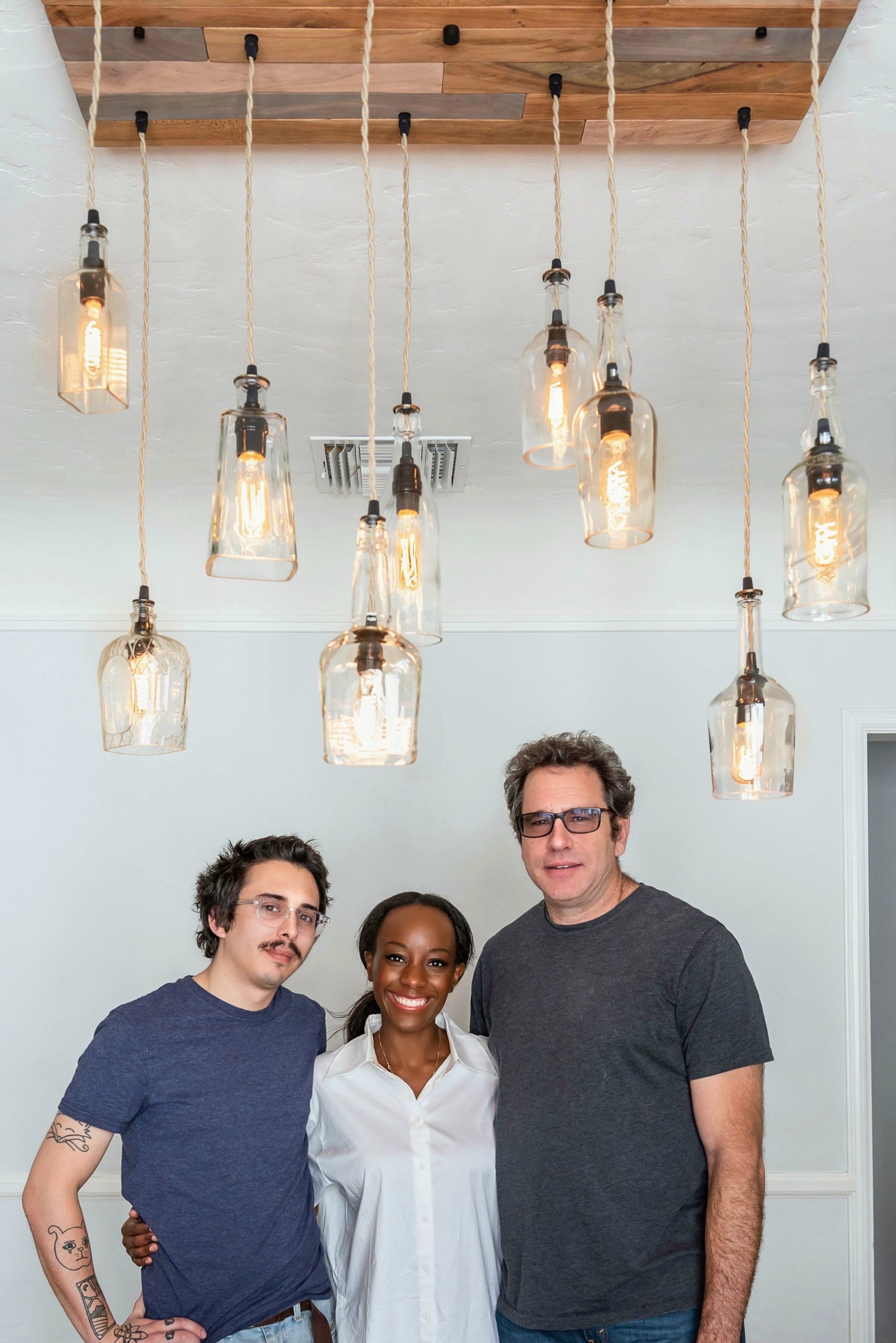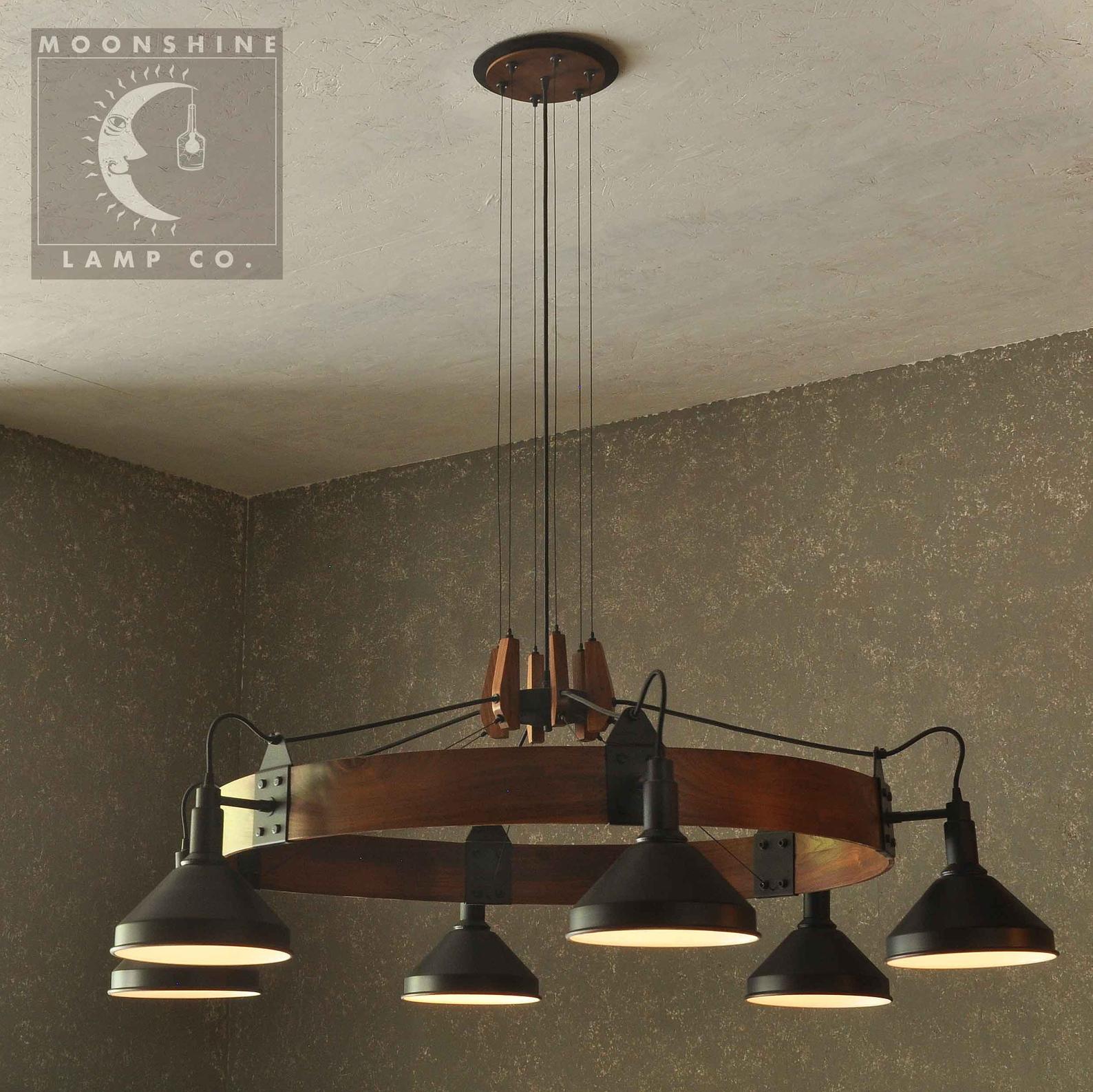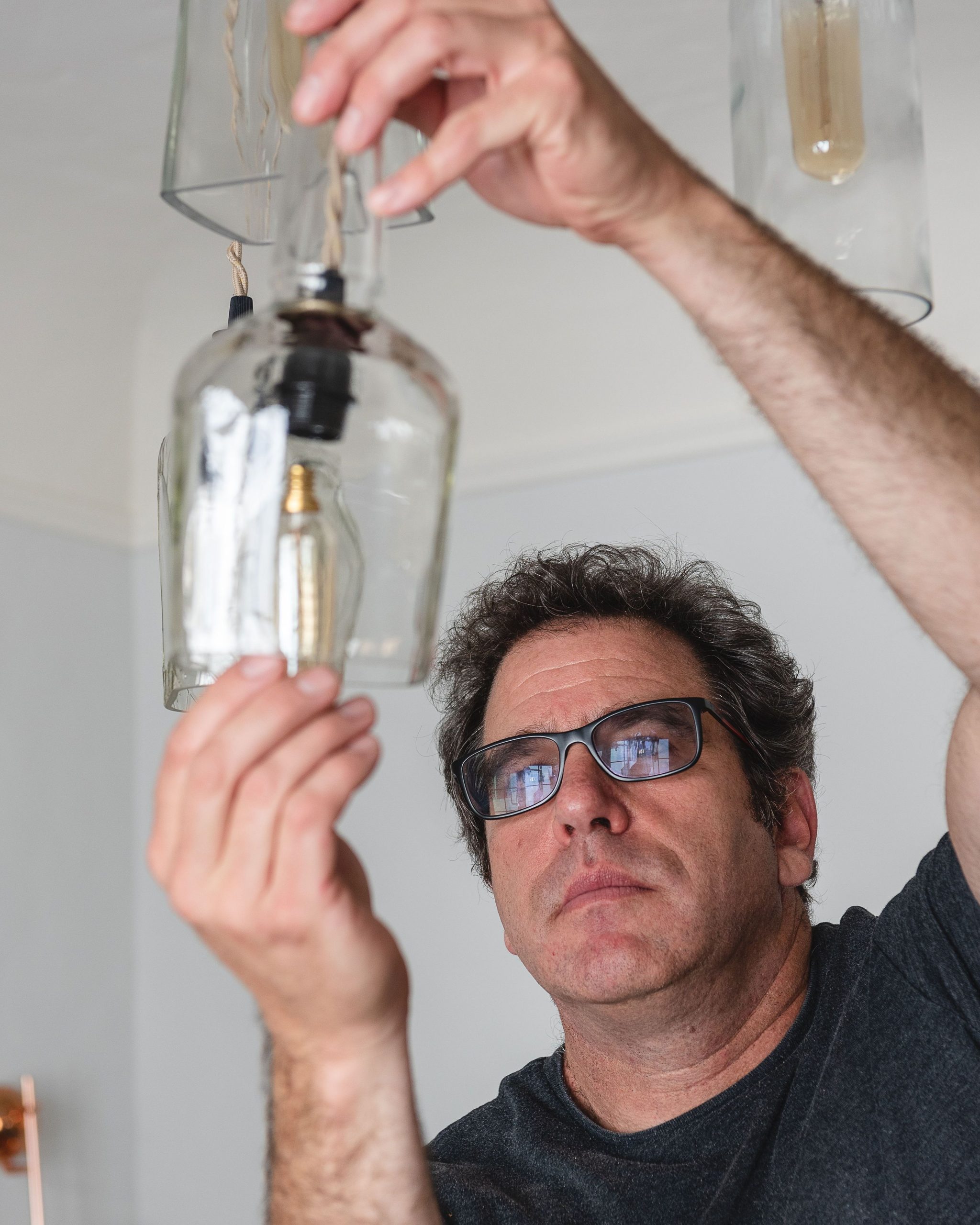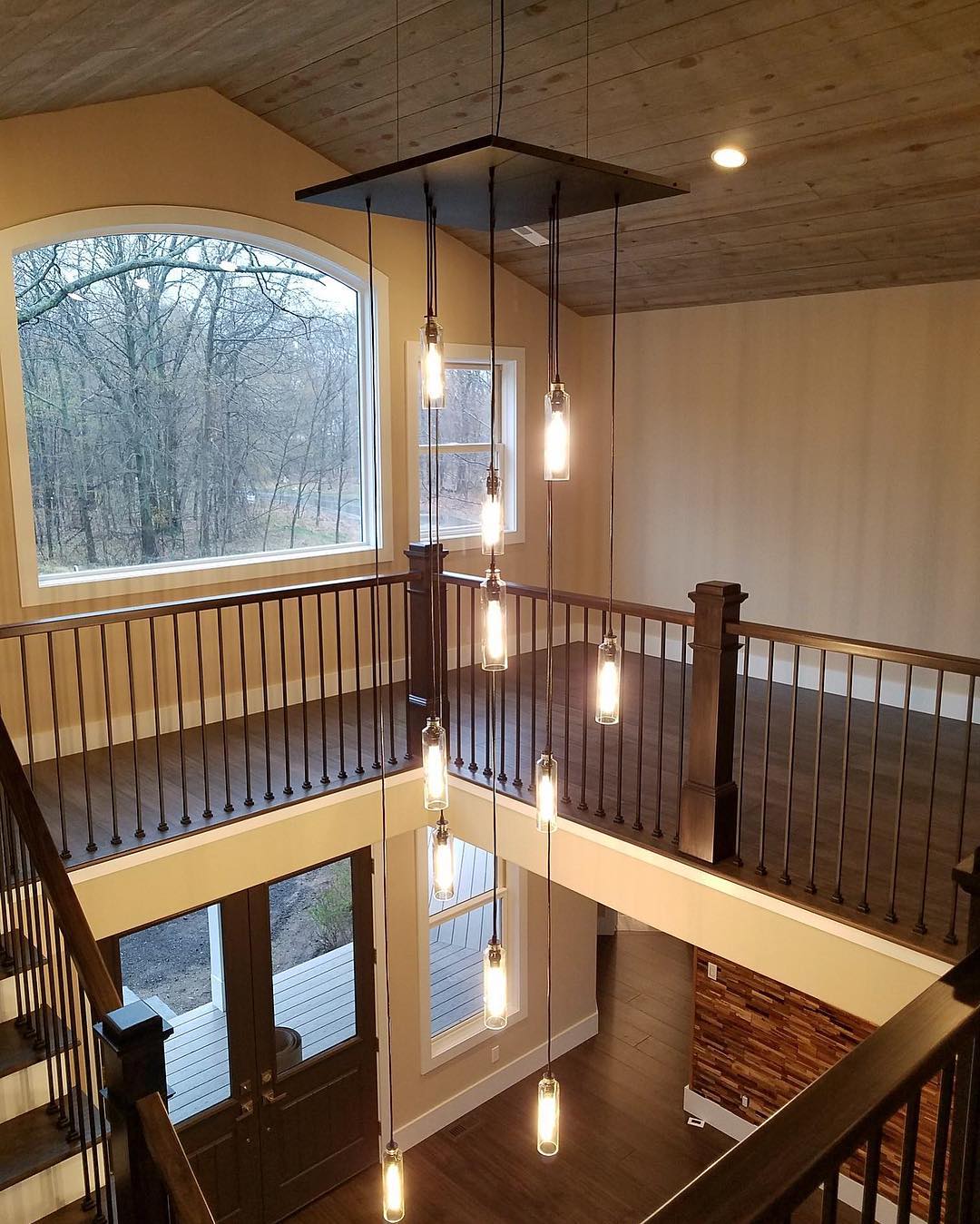Lately, I’ve been on a mission to find home brands that fit this bill, and few have astonished me quite like the Moonshine Lamp Co. Have a read of my interview with founder Rob Lewbel here…
Please introduce yourself and tell us a little about your brand…
I am Rob Lewbel, the founder of Moonshine Lamp, a lighting design and fabrication company located in Claremont, California. I worked in the movie industry in California for several years, watching and learning about creative design in the fabulous world of make believe. We take a customized approach to our lighting, similar to a fine furniture maker. Clients can chose from our extensive catalog of products or ask us to come up with a one of a kind piece to fit within their room design.
Tell us about the vision for your brand?
We want to expand our catalog into a highly artistic yet approachable style, incorporating customizable elements of metal and wood finish, glass options and the ability to scale any piece to balance a space and blend with the decor style of our clients’ vision.
How has your business grown from when you started to now?
We began making single pendant lamp fixtures exclusively from recycled glass bottles that we acquired from local restaurants and bars here in Claremont. As the owner of a brick and mortar store that features items made by may local artists, I wanted to contribute to our unique offerings. We started with one single glass bottle pendant and now have over 100 designs in our catalog.
What drew you to working with wood as a medium?
I started working with wood about 20 years ago, mostly out of necessity. We wanted a library wall unit in our house with a rolling ladder. I thought it would be really cool to make the thing myself, so I did, with the help of a lot of reading the acquisition of my first set of woodworking tools. Then, we wanted to put a fence line around our property with beautiful driveway and pedestrian gates. So, I made those as well. It was at that point that I got bitten by the woodworking bug, or perhaps the wood beetle, as it’s called.
What do you wish more people understood about the products that you make?
When it comes to handmade decor, there is a big challenge in the current marketplace. Overseas mass production of all kinds of products has brought pricing down, and quality, on any number of goods. And, the buyer’s perceived value of virtually everything is getting lower and lower. I think that some folks who watch a quick DIY video online have this perception that they can do anything. But, the reality is that crafting something by hand that has lasting beauty and staying power is not an easy thing. There are lots of problems to solve when taking an idea from design to the showroom floor.
Can you tell us a little about the different kinds of wood you work with and how you source your wood?
I have found a wonderful source for wood locally. Local arborists are now taking the dying and fallen trees that they remove from municipalities around California and are repurposing them for use in the making of fine furniture. It’s quite a remarkable trend that’s developed only over the last few years. There are all kinds of amazing wood available.
How do you approach sustainability/transparency within your brand?
Sustainability can be viewed on many different levels. Sourcing wood locally means that trucks aren’t burning fossil fuel to haul lumber miles across state lines. We also source the majority of our proprietary custom made materials from local vendors. This also keeps the flow of revenue and payroll here in town, adding to our local economy. We are conscious of the current trend of sustainable design, so we’re working with those who value that aspect of our business and request it.
What more do you think customers are looking for these days beyond good design?
Or do you think that design is really all that matters? I believe that design is number one. If you don’t like something, you’re not going to want it in your house, no matter what it’s made from. I think people are generally intrigued by the back story of a small company and really do respond to the fact that something is made by hand by a skilled artisan. We always enjoy when people go out of their way to visit our shop because they simply want to meet us and talk about our process and how we developed our business. So, the story is definitely a big part of our appeal.
How do you ensure quality with your brand?
We have a small shop, so very few hands are involved in the design, fabrication and even packing up of our lamps for shipping. We’re all very devoted to the process.
What were the biggest challenges you faced when trying to grow an ethical brand?
Generally, the cost. Mass production is hard to compete with. The small lumber suppliers have much larger costs when it comes to removing a tree, milling it, kiln drying it, then cutting it down further for dimensional sizing. The labor all adds up. And, developing relationships with local restaurants in order to convince them that we want recycled bottles as a legitimate material for our business does take time. But, we buff out the bartender tip jars handsomely. So, it’s all good.
Visit Moonshine and fall in love.



